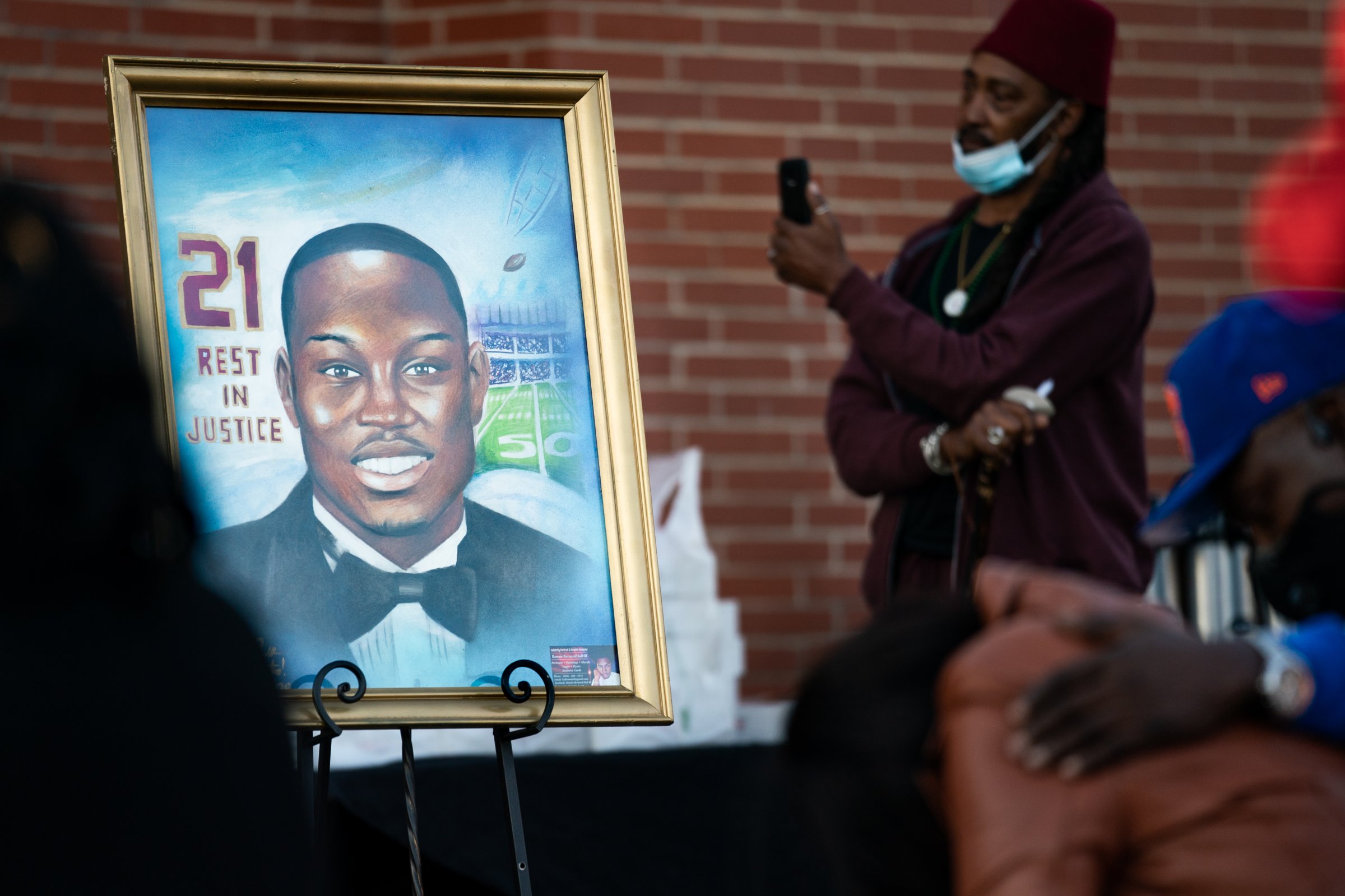
The three men who were convicted of killing Ahmaud Arbery were all found guilty of federal hate crimes trial on Feb. 22—after the jury spent less than 24 hours deliberating. The verdict comes just a day before the second anniversary of Arbery’s death.
Gregory McMichael, his son Travis McMichael and William Bryan all faced one count each of interfering with Arbery’s civil rights and one count each of attempted kidnapping; the McMichaels each faced an additional firearm charge.
On Feb. 23, 2020, the McMichaels and Bryan pursued 25-year-old Arbery, who had been jogging through a residential neighborhood just outside of Brunswick, Georgia, believing he was responsible for a series of robberies—though they had no evidence to support this. They armed themselves and chased him in two pickup trucks.
Read more: What Ahmaud Arbery’s Death Has Meant for the Place Where He Lived
After a confrontation, Arbery was fatally shot by Travis McMichael. The shooting was caught on camera by Bryan and months later was posted online, leading to widespread outrage and a national reckoning on racial injustice.
All three defendants had already been sentenced to life in prison for Arbery’s murder at the culmination of their November 2021 state trials, but the federal case—which argued that their actions were racially motivated, and violated Arbery’s civil rights—adds more penalties to their sentences. They had pleaded not guilty to the hate crime charges, after their initial guilty pleas, as part of a plea deal, were rejected by the judge over sentencing concerns.
Outside the courthouse after the verdict, Arbery’s mother Wanda-Cooper-Jones offered both praise and criticism for the Department of Justice (DOJ) in their handling of the case.
“I now want to address the members of the DOJ. I’m very thankful that you guys brought these charges… but back on January 31, you guys accepted a plea deal with these three murderers” Cooper-Jones said. She said she had “begged” the DOJ not to take the deal, and asserting that the verdict today would not have happened without her family’s continued activism.

Unlike the state trial—which mostly focused on the circumstances of the shooting itself—the federal trial addressed the role that Arbery’s race played in his murder, as was required to meet the bar for hate crime charges.
The prosecution argued this murder was driven by racial animus against Arbery, who was Black. During the trial, they presented text messages from two of the defendants, Travis McMichael and William Bryan, which revealed racially charged insults against Black people. (As his phone was encrypted, the FBI was unable to access Gregory McMichael’s communications.) In addition, witnesses testified to hearing the men make similar comments, and racial slurs specifically, in person.
“All three defendants told you loud and clear, in their own words, how they feel about African Americans,” Tara Lyons, a prosecutor in the case, said on Monday, according to the Associated Press.
Read more: The Key Role a Local Newspaper Played in the Trial Over Ahmaud Arbery’s Murder
The defense team appointed to represent the three men tried to argue that their racial remarks did not constitute direct evidence that Arbery’s murder was racially motivated, or that their decision to chase him on suspicion of criminal behavior was either.
But during closing arguments, prosecutor Christopher J. Perras argued that the defendants’ alleged concerns about trespassing did not hold up, highlighting incidents of trespassing by white people in the area to which they had not expressed similar (or any) concerns.
“Two years ago today, none of us knew of Ahmaud Arbery. But two years ago tomorrow, his story shook the conscience of our nation and world,” NAACP President Derrick Johnson said in a statement. “Ahmaud Arbery was lynched in broad daylight, and today’s verdict brings us one step closer to justice.”
More Must-Reads from TIME
- Cybersecurity Experts Are Sounding the Alarm on DOGE
- Meet the 2025 Women of the Year
- The Harsh Truth About Disability Inclusion
- Why Do More Young Adults Have Cancer?
- Colman Domingo Leads With Radical Love
- How to Get Better at Doing Things Alone
- Michelle Zauner Stares Down the Darkness
Write to Josiah Bates at josiah.bates@time.com